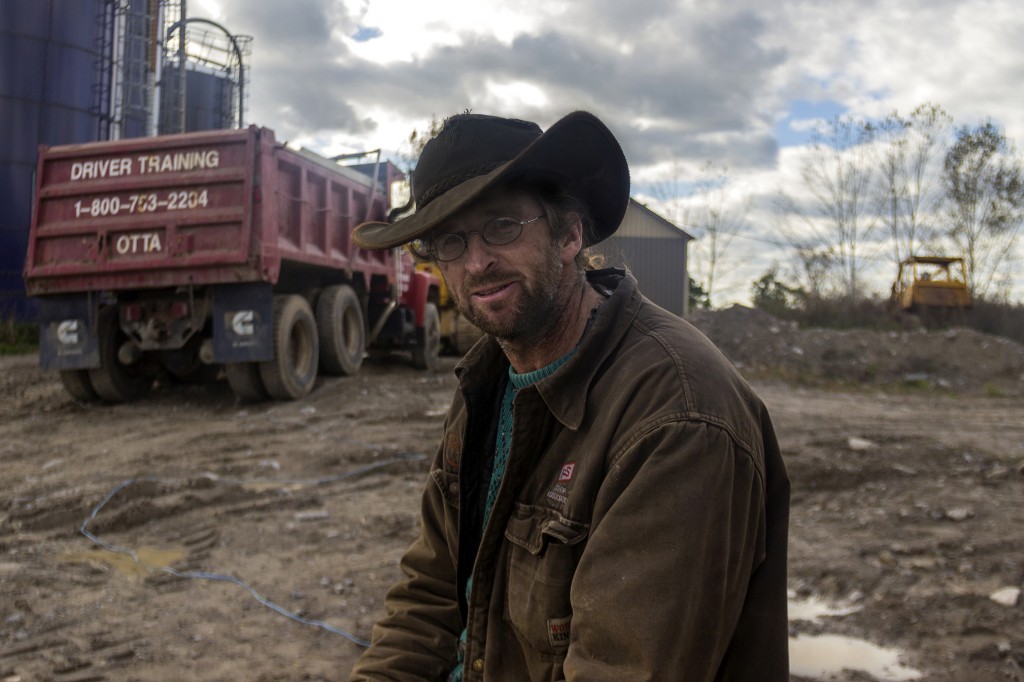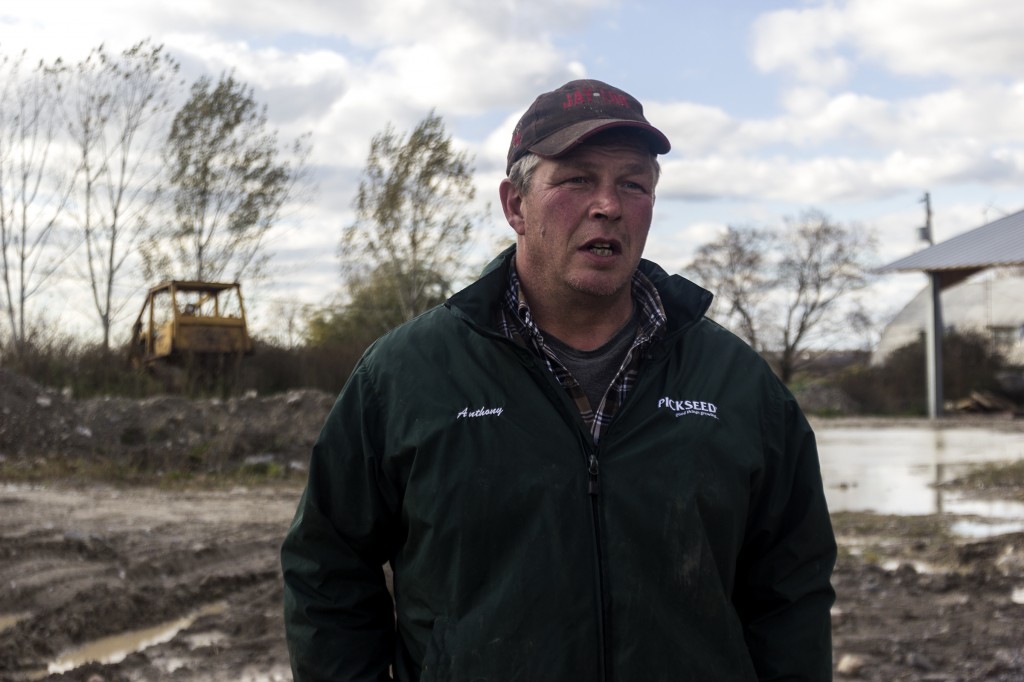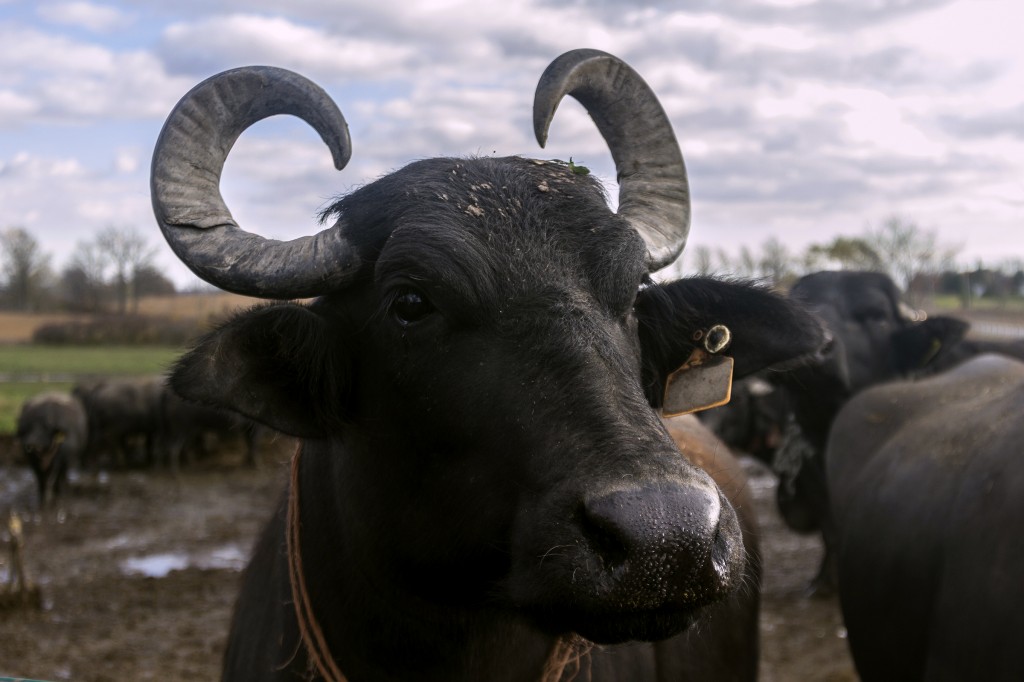By Jack Carver
BELLEVILLE – Thanks to a new trade pact with the European Union the door to one of the world’s largest markets is opening for Canada – but not everyone is singing the deal’s praises.
In exchange for Canada’s exporting of more beef to the European Union, the EU will export more tariff-free cheese and dairy products to Canada.
While beef farmers out west are celebrating the new deal, local cheese and dairy farmers are showing more trepidation.
Martin Littkemann, whose central Hastings County farm produces water buffalo mozzarella, said he’s unsure how to feel about the deal so far.
“The additional importation of this cheese could have a negative or positive effect on our industry but right now it’s too hard to tell,” he said. “They’ve just kind of announced it. We need to see all the details before we can say with any certainty whether it’s going to harm or help us.”
 [1]
[1]CENTRAL HASTINGS – Water Buffalo mozzarella cheese maker, Martin Litkemann, is unsure how he feels about the trade deal so far. Photo by Jack Carver
Litkemann has been making water buffalo mozzarella since 2008. His market has increased in recent years once the local community, who prefer sharper cheeses like cheddar, got used to his product.
“Our market has actually increased but can we grow?” Litkemann said. “I don’t know. People love local food and that’s what we’re banking on.”
Even with tariffs being removed on the EU cheese coming in, Litkemann said he is confident that this isn’t the end of artisan cheese in Canada.
“In the big picture, we’re a pretty small player,” he said. “If the big countries and mozzarella-producing companies would really want to squash our market they would just send it in here below cost of production and just flood the Canadian market.”
The deal will put Canada in a unique position. It will be the only G8 country to have preferential access to the EU and the United States, the world’s two largest markets and home to a total of over 800 million people.
The pact would eliminate tariffs on almost all goods and services and set larger quotas for EU dairy exports.
Anthony Kooistra, dairy farmer and chair of the Hastings County Dairy Producers, said he sees the deal as a concern for the area.
“We know very little of the exact details other that there’s supposed to be double the amount of imports of European cheese coming into the country,” Kooistra said. “A lot of it will be fine cheese, which will be very hard on our specialty cheese industry that’s very thriving right now in this part of Canada.”
 [2]
[2]CENTRAL HASTINGS – Anthony Kooistra, chair of the Hastings County Dairy Producers, is worried about the impact the deal will have on local dairy farmers. Photo by Jack Carver
The provincial government has said there will be compensation for producers who are affected negatively by the new import quotas. Kooistra said he’d have to wait and see just how much the compensation will actually help dairy farmers.
“All of a sudden if we lose two to three per cent of our milk quota (the limits on how much dairy farmers can produce), where do we gain that from? If you take two per cent out of larger businesses it doesn’t affect them that much at the end of the day because it comes out of their net,” said Kooistra.
“With farming it comes out of your gross. Two per cent of your gross is a lot of money. It’s way more than what I probably make in a year myself for income.”
Kooistra explained that Western Canada pork and beef farmers are the big winners in this deal, gaining a huge share of the market once they meet the new exporting quotas. He doesn’t see the same positive effects coming to beef farmers in Eastern Ontario, he said.
“The cow herd here has dwindled so much from BSE in 2003, Ontario is no longer sustainable in our beef industry,” said Kooistra. “We have a herd of about 200,000 cows and we need a herd double that size in order to supply the consumers.
“I don’t see an advantage for anyone in Eastern Canada with the deal they made, because there are no extra cattle here to be exported.”
 [3]
[3]CENTRAL HASTINGS – Water buffalo mozzarella is classified as a fine cheese, softer and subtler than local cheddar. Photo by Jack Carver
Talks for the trade deal launched in 2009 but stalled after disagreements over quotas for Canadian beef and EU cheese. Last week, Quebec announced its support for the agreement after showing unhappiness about the deal earlier in the year.
With the new deal, Canada will be able to export 80,000 metric tonnes of pork and 50,000 metric tonnes of beef free of duties to the EU yearly.
Prior to the deal, Canada was able to import 13,000 tonnes of EU cheese and dairy a year but the deal has the import quota moving up to 30,000 metric tonnes of product.